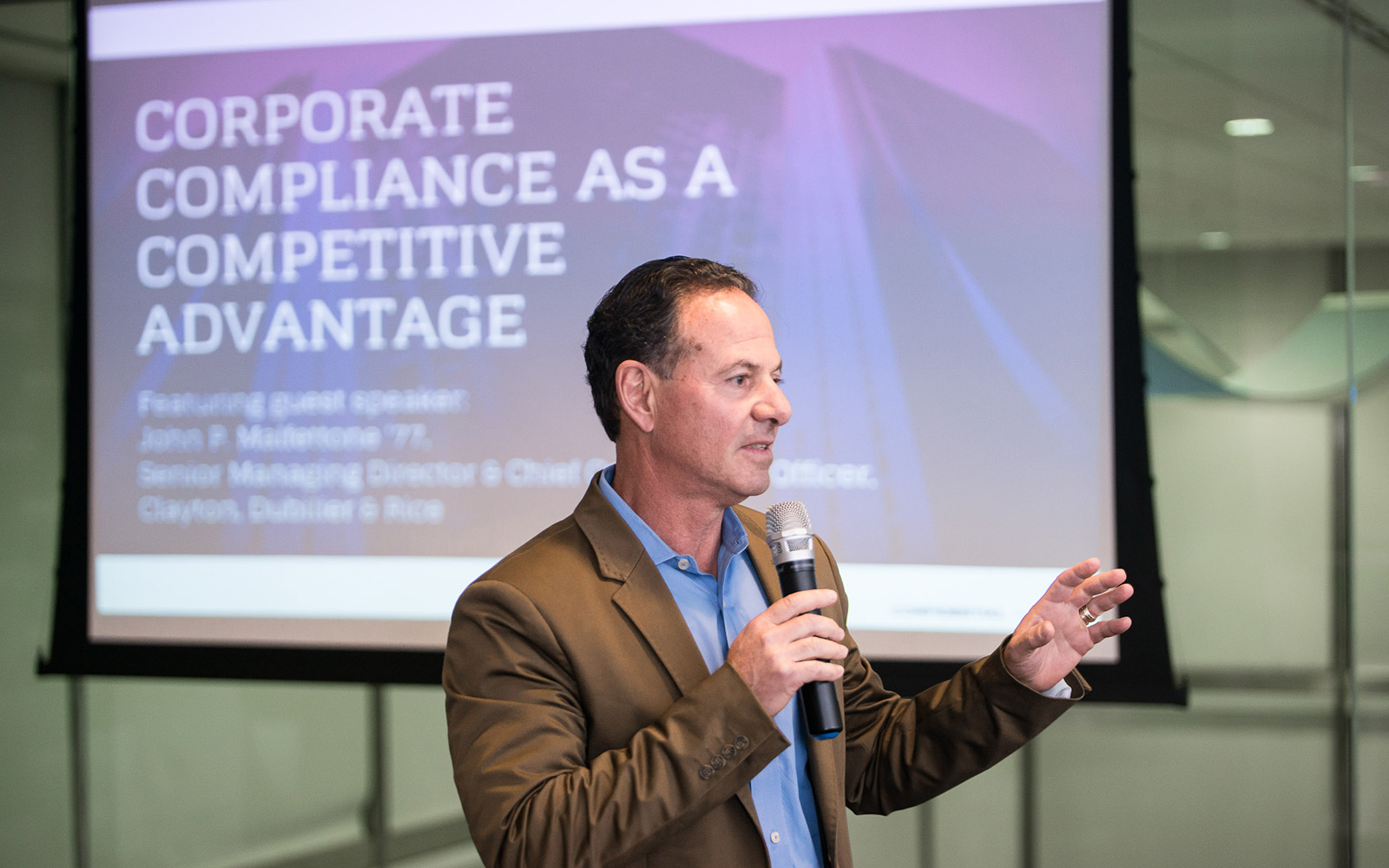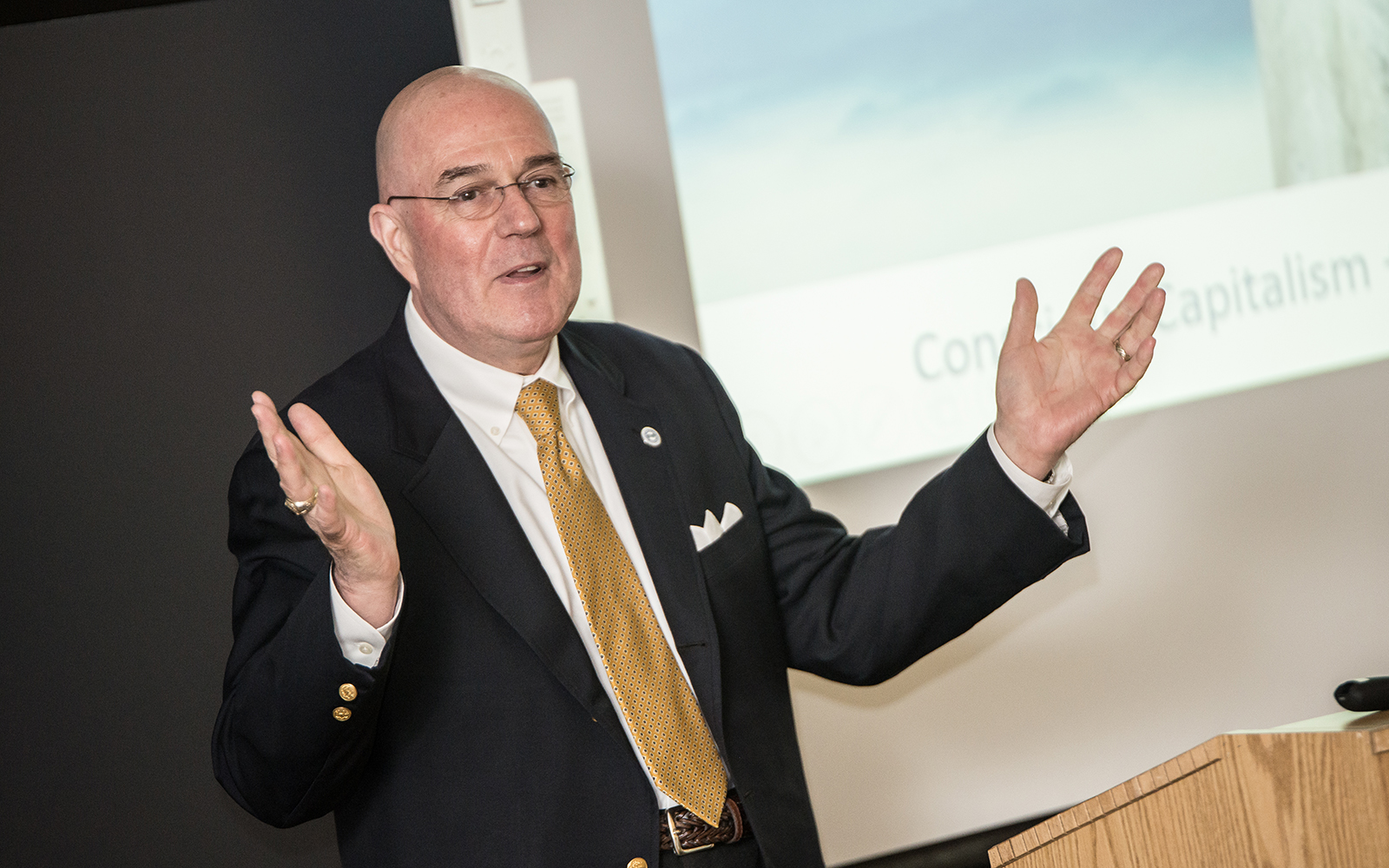
John Malfettone ’77, senior managing director and chief compliance officer at Clayton, Dubilier, and Rice, spoke to 100 students and alumni about “Corporate Compliance as a Competitive Advantage.” Continue Reading

John Malfettone ’77, senior managing director and chief compliance officer at Clayton, Dubilier, and Rice, spoke to 100 students and alumni about “Corporate Compliance as a Competitive Advantage.” Continue Reading
Berkeley Journal of Employment & Labor Law, Vol. 37, Issue 1 (2016)
University of Pennsylvania Journal of Business Law, Vol. 19, No.2 (2017)

A Connecticut CEO presented to undergraduate students on April 25 about how business can serve a higher social goal through the introduction of ‘Conscious Capitalism’ into the organization. Continue Reading
Satell Institute – On January 13, 2016, General Electric, a multinational conglomerate and one of the largest Fortune 500 companies, announced that it will move its corporate headquarters from Fairfield, Connecticut to the South Boston Waterfront area of Boston, Massachusetts. While the move is laden with consequences for the future direction of the company, it also represents a significant loss for the citizens of southwestern Connecticut. Continue Reading
In describing the UConn School of Business at this moment, 76 years into its accomplished history, the word “engaged” captures the essence. Our students, faculty and staff are engaged with each other, with our alumni, with the corporate community and with the University.
The School’s growth has been extraordinary, both in terms of enrollment and creating and maintaining vibrant, effective and relevant academic programs. We are transforming the future—of our students, our state, our industries and our world. There is much to celebrate.
We invite you to read the 2016 Dean’s Annual Report.
Knowridge Science Report– A new ‘Right to Disconnect’ law that went into effect on Jan. 1, 2017 gives French employees a qualified legal right to ignore work emails outside of normal business hours.
The Daily Campus– In a world of heavy smartphone use, nearly everyone can relate to constant notifications and the “ping” signaling the arrival of another email in their inbox. This year, French employees gained a legal privilege through the “Right to Disconnect” law, which grants them the ability to put their work emails aside outside of normal business hours.

A new ‘Right to Disconnect’ law that went into effect on Jan. 1, 2017 gives French employees a qualified legal right to ignore work emails outside of normal business hours.
Designed to reduce work-related stress and decrease employee burnout, the law requires companies with 50 or more employees to form policies with their workers that limit work-related technology use after hours. Continue Reading